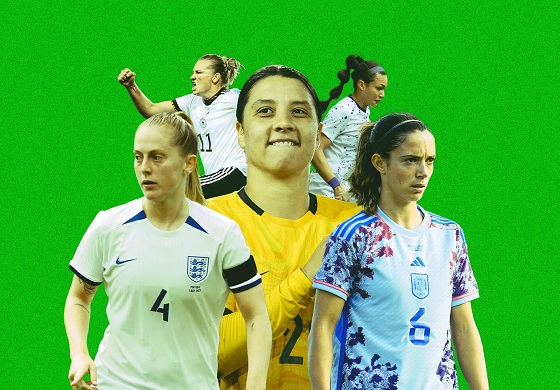The 2023 Fifa Women's World Cup is just days away, as the best players from across the globe travel to Australia and New Zealand with their eyes on one prize.
It promises to be the biggest Women's World Cup ever, with 32 teams taking part and record numbers of tickets sold.
If you are a new fan of women's football, having been drawn in by England's European Championship triumph last summer or wanting to indulge in a month of summer sport, we have you covered.
We have picked out 10 of the biggest stars who could have a major impact in their nation's hunt for glory...
Sam Kerr (Australia)
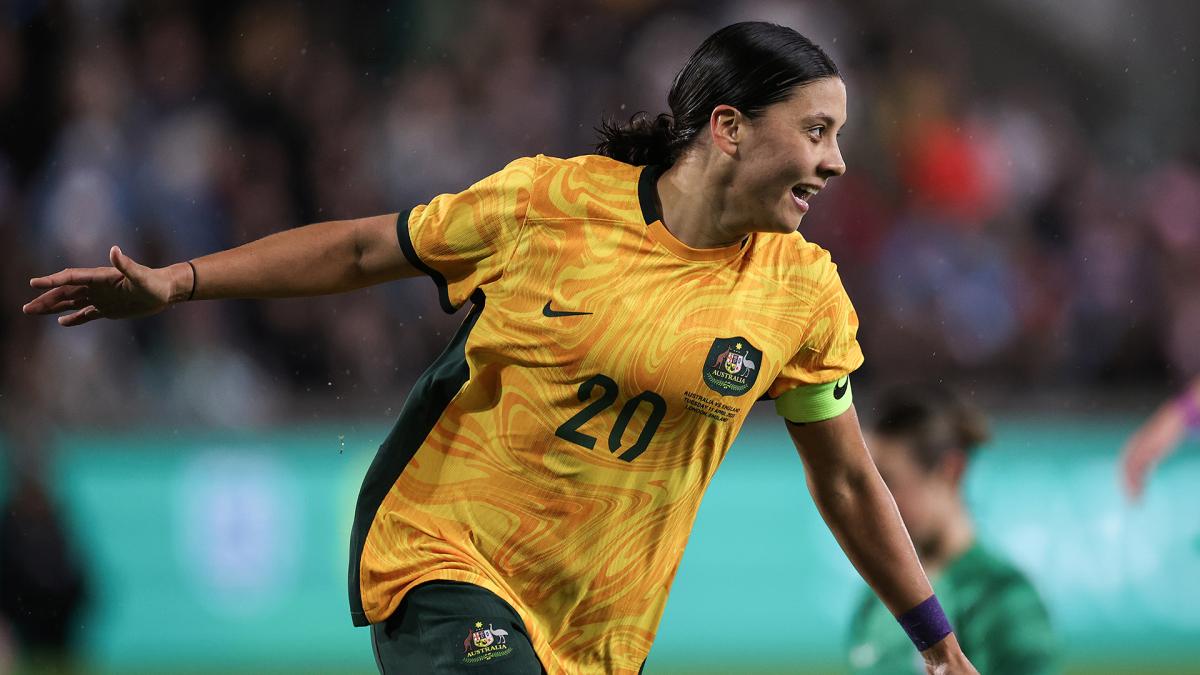
If the Women's World Cup were a Hollywood movie, Kerr would be the main character. The 29-year-old striker is the co-host nation's captain, main striker and most recognisable player. She is the Matildas' all-time record scorer and even carried the Australian flag at King Charles' coronation.
"One thing is her individual qualities as a footballer, but even more valuable to this team is what she gives as a person and how she carries them," Australia manager Tony Gustavsson said. "It's amazing."
A serial winner and a big-game player at Chelsea - where her manager Emma Hayes has called her "the best in the business" - Kerr's aim is now to bring that top-tier prowess to bear for Australia.
Alexia Putellas (Spain)
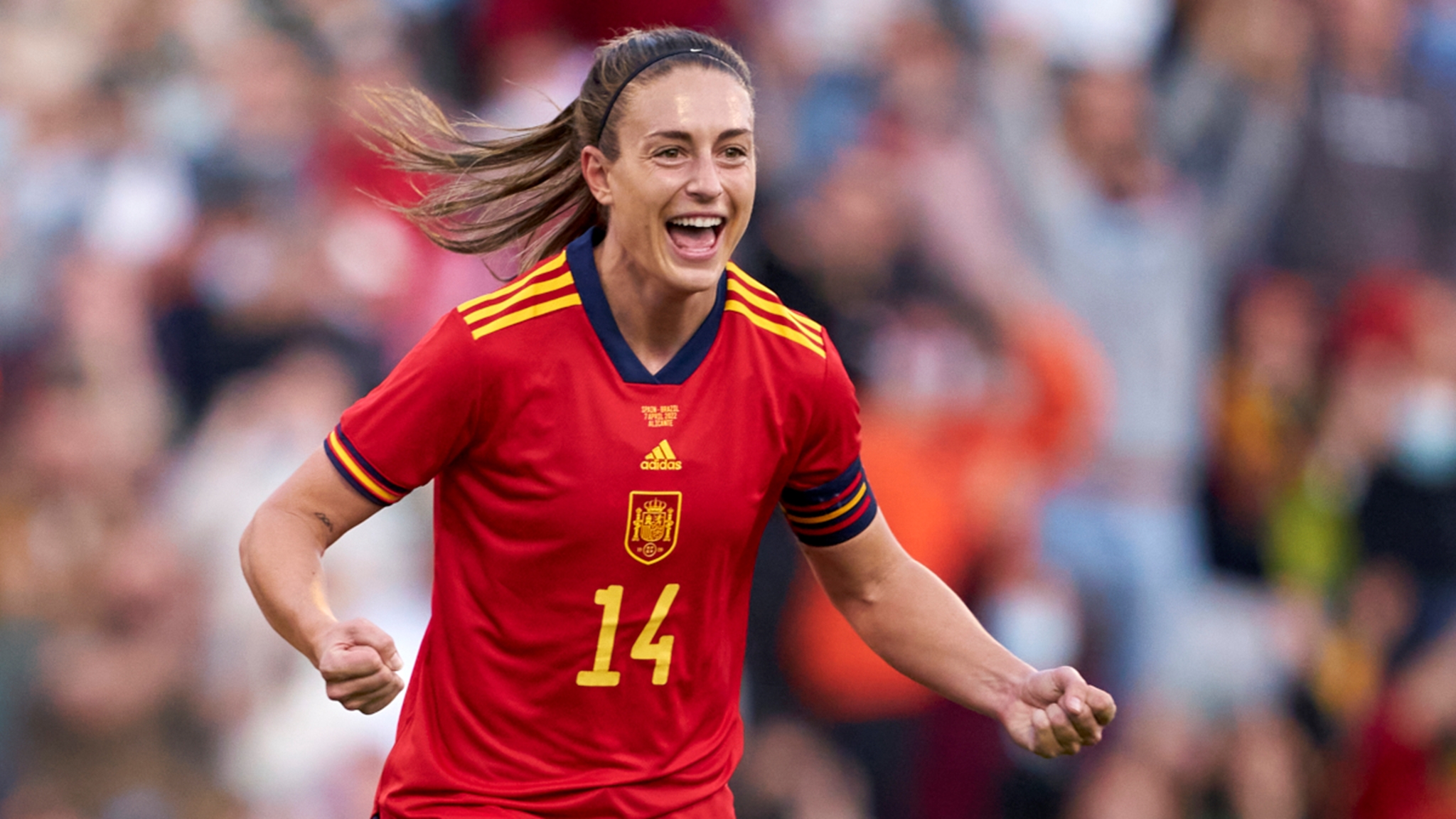
Whether being ruled out of Euro 2022 with a knee ligament injury, or going loggerheads with the Spanish FA over their treatment of the women's team, the 29-year-old midfielder's path to international glory has been littered with obstacles.
The presence of Putellas in Australia and New Zealand for Spain is crucial. Winner of the Ballon d'Or for the last two seasons, as well as seven league titles and two Champions Leagues during her Barcelona career, Putellas is widely regarded as the world's best female footballer.
"I always said to the players, if you don't know what to do with the ball, pass to Alexia and she will know," said former Barcelona coach Lluis Cortes. "She is able to make the best decisions every time."
Ada Hegerberg (Norway)
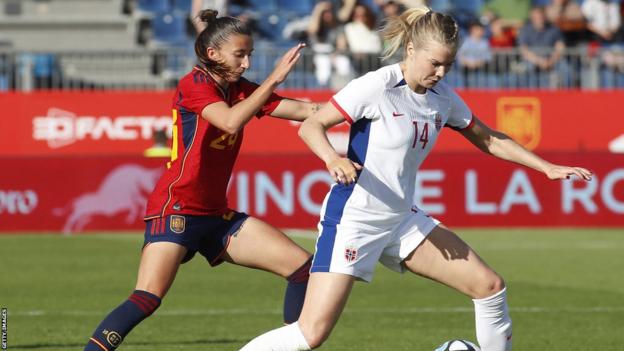
On the pitch, the 28-year-old Hegerberg is among the best players in recent years. She won the inaugural women's Ballon d'Or - awarded to the best footballer of the year - in 2018, while for Lyon she has collected eight French league titles and six Women's Champions Leagues so far.
Off the pitch, the forward has fought back from serious injury, while she refused to play for Norway for five years in protest at how the national association treated its women's team, before returning for Euro 2022.
"She is world class and has delivered goal after goal on the biggest football stages for a number of years," former Norway manager Martin Sjogren said before Euro 2022. "Of course, getting her back means a lot to the Norwegian national team."
Alex Morgan (United States)
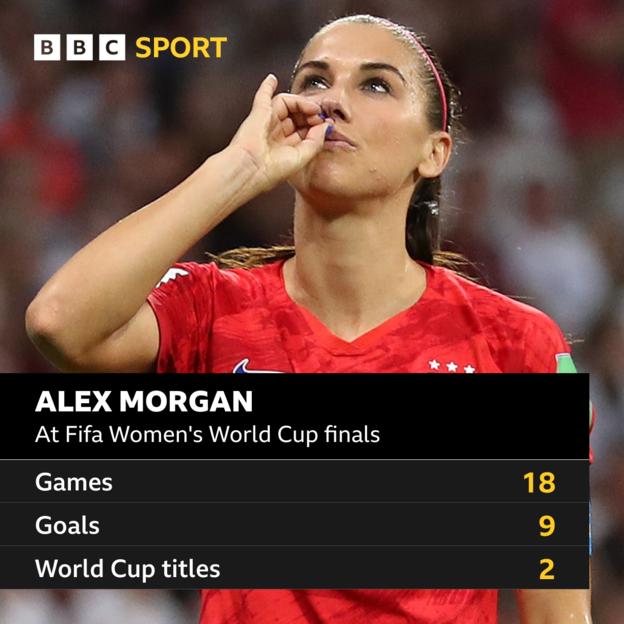
Four years ago, striker Morgan infuriated England fans with her tea-drinking celebration after scoring in the United States' 2019 World Cup semi-final win. Now 34, she has the ability to fire the US all the way again, as they target an unprecedented third successive title and she looks to add to her nine goals in 18 World Cup games.
"She is the rare example of a soccer player who has transcended her own sport to hold a place in mainstream culture," US women's soccer journalist Caitlin Murray said in 2021.
Although it will be her fourth World Cup, US coach Vlatko Andonovski said Morgan was as excited as ever. "Alex has been in this situation so many different times, but you could tell [the call-up] touched her," he added.
The outspoken striker, who has scored 121 goals in 207 internationals, was also central to the US women's national team's fight for equal pay and criticism of Fifa's now-abandoned plans to partner with Saudi Arabia as a sponsor for the 2023 World Cup.
Keira Walsh (England)
The metronome keeping time in the centre of England's midfield, the 26-year-old Walsh was named player of the match in the Euro 2022 final to cap a sensational individual tournament.
She has since moved to Barcelona, won the Champions League and cemented her status as one of the world's best playmakers.
"She's a fantastic player and we're very lucky to have her," Barcelona winger Caroline Graham Hansen said. "She has very good vision for the game. She has adapted well. It's not easy to come to Barca and play as a number six. She's taken that with ease."
The 59-cap international will also have an enhanced leadership role for the Lionesses in the absence of injured captain - and her good friend - Leah Williamson.
Alexandra Popp (Germany)
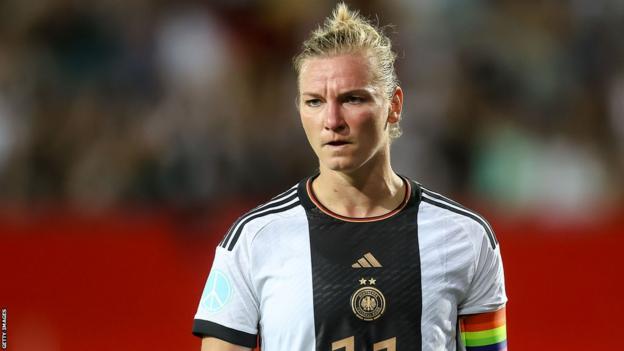
Had the 32-year-old striker been fit to play in the Euros final last summer, the outcome against England could easily have been very different. Popp scored in every game she played at Euro 2022, while she helped Wolfsburg reach the 2023 Champions League final where they lost 3-2 to Barcelona having been two goals up.
"When you see her on the pitch, she is an intimidating figure," ex-England defender Anita Asante said of Popp during Euro 2022.
"She's lethal in the air. Her aerial ability, the power, the leap that she has, and her ability to use her physicality - that's one of her super strengths."
Marta (Brazil)
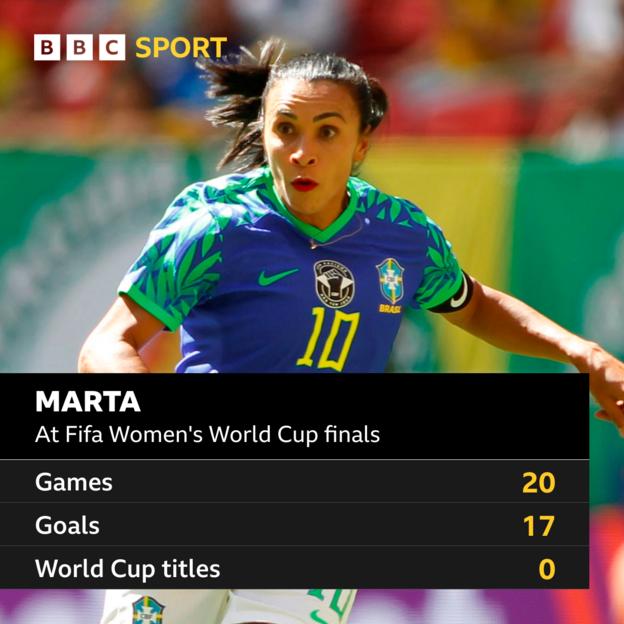
The 37-year-old Marta has struggled with injury for the last 12 months and missed the Finalissima defeat by England in April; however, the legendary forward is in the Brazil squad for what will be her sixth World Cup.
Brazil's all-time leading scorer, with 115 goals in 175 games, quick-footed skill and flair has seen her compared with male World Cup winners such as Ronaldinho, Romario and even Pele. The face of the team for years, her experience could prove invaluable.
"Marta is the queen, she is an icon. Just being around her is contagious," said Brazil manager Pia Sundhage after announcing her squad.
Asisat Oshoala (Nigeria)
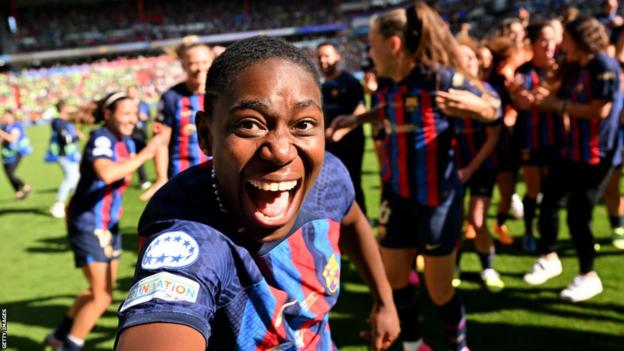
Nigeria have been to every Women's World Cup since 1991 but only once have reached the quarter-finals. If they are to truly make their mark on the global stage, then 28-year-old striker Oshoala will be key.
"When you have Oshoala, you have a chance against any team," said Nigeria's American coach Randy Waldrum, referring both to the striker's goal record - 83 strikes in 89 Barcelona league matches - and trophy haul.
Oshoala's honours feature a Champions League title, three African championships for Nigeria, back-to-back titles from a spell in China, and a Women's FA Cup from 2016 with Arsenal. She won the BBC Women's Footballer of the Year award in 2015, while with Liverpool.
Wendie Renard (France)
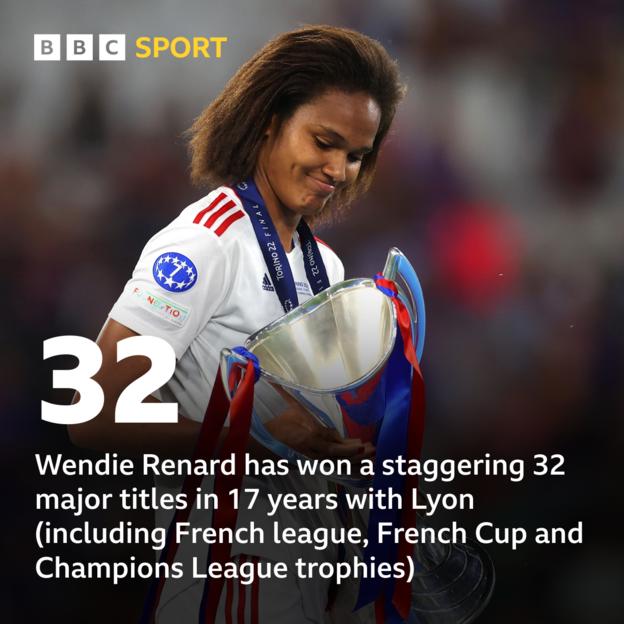
Renard, a 32-year-old defender, said in March she would miss the World Cup "to preserve my mental health". However, she returned following the sacking of coach Corinne Diacre in a huge boost for the French.
With 15 Division 1 Feminine titles and eight Champions Leagues for Lyon, the 145-cap international is the figurehead for her national team, looking to make up for World Cup disappointment on home turf in 2019.
"She is so inspirational," Aston Villa and France midfielder Kenza Dali said of Renard. "She is the first and last at training and works so hard. She's a natural leader and a proper captain."
Pernille Harder (Denmark)
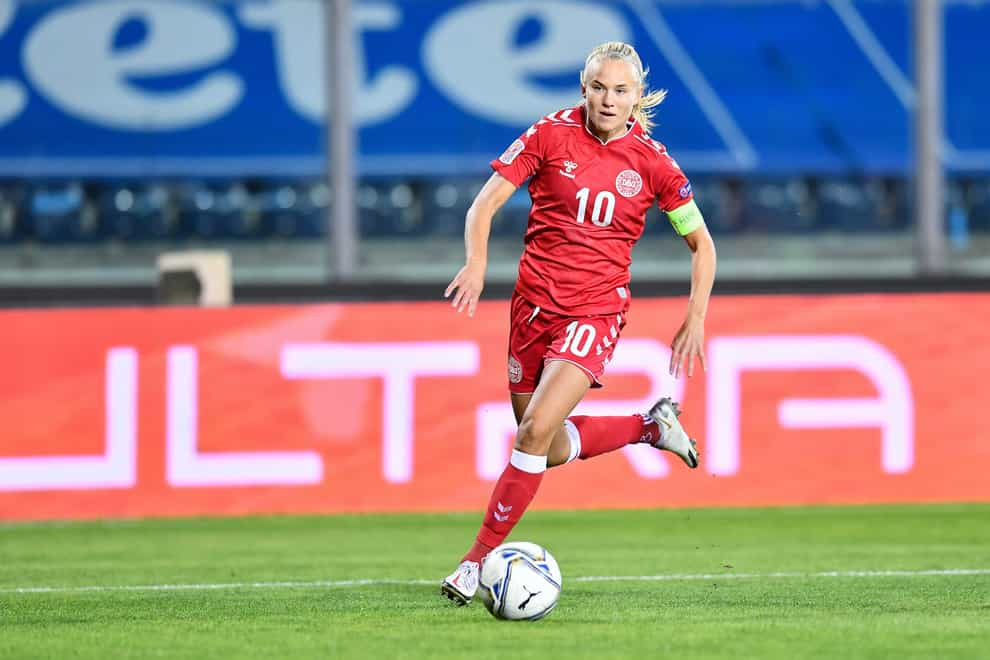
Having missed most of last season with a hamstring injury, the 30-year-old attacking midfielder played a game-changing role for Chelsea off the bench in the 2023 Women's FA Cup final against Manchester United - just as Harder has in so many matches in her stellar career.
She became the world's most expensive female footballer in 2020 following her move to west London from Wolfsburg. She has been named Uefa Player of the Year twice and reached the Champions League final with both Wolfsburg and Chelsea. She was runner-up for the Ballon d'Or in 2018 and recently signed for Bayern Munich.
"Her movement, her work rate, the ability to link up," enthused BBC pundit Alex Scott after the Women's FA Cup final in May. "It was her that actually made the huge difference for Chelsea to go on and win this game."
Denmark will hope for a similar impact at their first World Cup since 2007, and Harder's maiden appearance at the global tournament.
BBC

